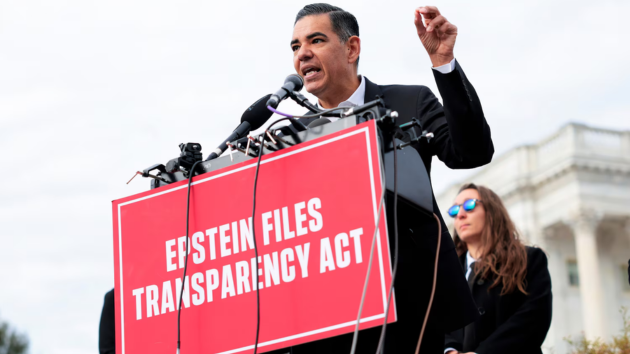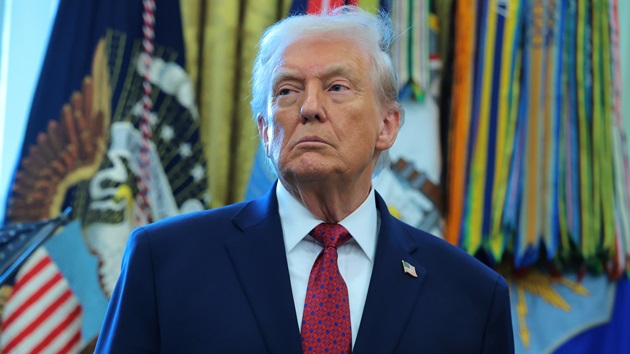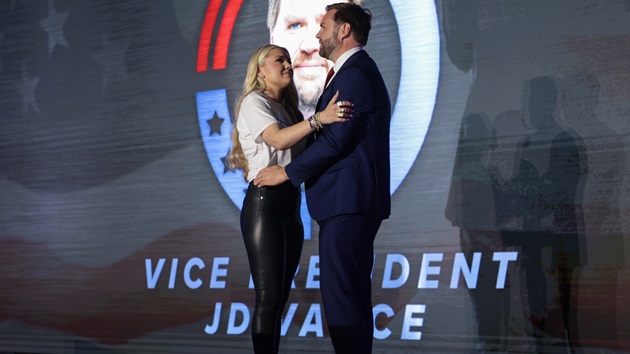White House defends retaliation against Houthis: ‘Deterrence is not a light switch’
Written by ABC Audio ALL RIGHTS RESERVED on January 21, 2024
(WASHINGTON) — A top White House national security official is defending the repeated U.S. strikes on Houthis in Yemen, amid attacks by the militant group on international ships in the Red Sea, which has drawn America into a pattern of back-and-forth retaliatory operations.
“In terms of how this is playing out, I think one thing that’s important to keep in mind is deterrence is not a light switch,” the White House deputy national security adviser, Jon Finer, told ABC News “This Week” co-anchor Martha Raddatz on Sunday. “It requires a pattern and a practice of activity over time and can’t be accessed based on a snapshot of what’s happening at any given moment.”
Raddatz had asked Finer: “Where does this end? It’s in this stage of tit for tat.”
President Joe Biden acknowledged to reporters last week that the strikes weren’t stopping the Houthis but that they would continue.
“The purposes here go well beyond deterrence,” Finer told Raddatz. “We are also seeking to degrade the Houthis’ ability to continue launching these attacks.”
Since strikes on Red Sea ships began escalating in recent weeks, the U.S. has also announced an international task force to, essentially, help police the Red Sea area from further attacks.
The U.S. has taken diplomatic steps, too, Finer said on “This Week.”
“We’ve imposed sanctions on the Houthis, we have gotten dozens of countries to issue statements condemning their attacks,” he said.
Last week, the Biden administration announced that the Houthis would once again be classified as a terrorist organization, reimposing a designation the White House had earlier lifted out of concerns about how it could affect Yemen’s ongoing civil war.
“This is not an attack just on the United States,” Finer said. “This is an attack on the entire global economy and the world is standing up and saying they won’t tolerate that.”
Both the Houthis in Yemen and Iran, whom the U.S. calls a key backer of the Houthis, have said they are carrying out strikes in response to Israel’s bombardment of Gaza in order to take out Hamas in the wake of Hamas’ Oct. 7 terror attack.
The altercations in the Red Sea, at Israel’s border with Lebanon and at U.S. military sites in Iraq and Syria, as well as elsewhere in the Middle East, have raised concerns that Israel’s war with Hamas could spill into a wider regional conflict.
That’s something the U.S. has maintained it doesn’t want.
At the same time, U.S. officials have said they must respond to strikes from Iranian-allied groups like the Houthis and others.
On Saturday, an American airbase in western Iraq came under fire from Iranian-backed fighters, military officials said. Finer, on “This Week,” said, “I’m not going to get ahead of any decisions the president may make, but you can be sure that we are taking this extremely seriously and we’ll have more to say about it soon.”
Raddatz asked Finer about the U.S. decision to not take more direct actions against Iran.
Finer said the U.S. rejects “the justification and the rationale that because there is a conflict going on between Israel and Hamas in Gaza, that entitles a group to take action, military actions, against the entire global economy, against shippers … that have nothing to do with that conflict.”
He went on to say that “we have held Iran responsible for this in a number of ways.”
“We have taken military action against sites in Iraq and Syria tied to [Iran], which supports these militias,” Finer said.
“I’m not going to sit here and say we are going to take this or that action ahead of decision-making,” he said, “but we have been quite clear and we have been quite willing to take action to hold Iran responsible for these attacks in the past.”
Raddatz also asked Finer about the dire humanitarian conditions in Gaza, where Israel is continuing its now monthslong campaign against Hamas and where approximately 25,000 people have been killed, according to the Gaza Ministry of Health.
Finer said last month that the White House thinks Israel “did not show sufficient care for civilian life” in Northern Gaza — echoing what various other high-level Biden administration officials have been saying, trying to balance opposition to Hamas with public concern for Palestinian civilians.
Referring to his previous comments, Raddatz asked on Sunday, “Have things changed and what do we do about them?”
“We have stood up for Israel’s right to take defensive actions against Hamas so that this threat cannot be perpetrat[ed] against them again. But we’ve also been quite clear that the way in which Israel conducts this conflict is of great concern to us,” Finer said.
He told Raddatz that the U.S. had seen a a recent “shift” in the fighting in which Israel has begun “to focus more on high-value targets, on Hamas leadership.”
Still, “There needs to be more humanitarian assistance going into Gaza,” Finer said.
And while he called out “small but consequential steps” like progress with a border crossing opening and the arrival of some goods, he said that was “not enough.”
“And so we’re gonna continue to put the pressure on and continue to try to work day in, day out, in excruciating detail to make sure that the humanitarian assistance in Gaza is improved as this conflict shifts to a different phase,” Finer said.
Copyright © 2024, ABC Audio. All rights reserved.






